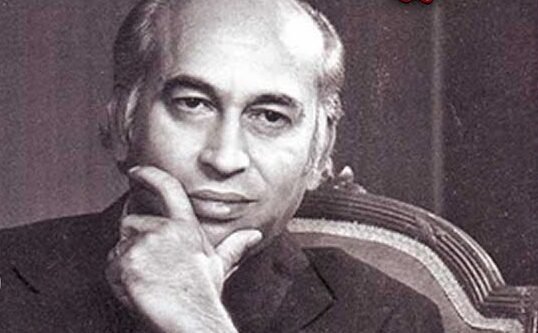PPP to unveil canal policy amid emotional tribute to Bhutto’s legacy at Garhi Khuda Bakhsh Rally
Beneath the looming shadow of the Bhutto mausoleum, Pakistan Peoples Party (PPP) Chairman Bilawal Bhutto Zardari prepares to unveil his party’s future strategy on the controversial canals project. The announcement, expected during his address at the 46th death anniversary of Zulfiqar Ali Bhutto this evening, could mark a decisive shift in PPP’s stance on water politics.
Thousands of supporters are pouring into Garhi Khuda Bakhsh, the hallowed ground where the Bhutto dynasty rests. A sea of party flags, chants of loyalty, and mournful reflections have transformed the quiet town into a politically charged shrine. Tight security grips the venue as the rally prepares to commence at 6pm.
Bilawal is set to take the stage alongside senior PPP leaders, with emotions running high and expectations even higher. For many gathered here, this is not just an anniversary—it’s a moment to rekindle Bhutto’s ideological flame and to confront modern challenges, especially the mounting tensions around the canal issue.
A day before the event, Bilawal issued a statement framing his grandfather’s legacy as the guiding light through Pakistan’s darkest hours. “Zulfiqar Ali Bhutto resurrected a nation broken by war. He stabilised our country, uplifted our people, and led us with unmatched courage,” he declared.
He reminded Pakistanis of Bhutto’s pivotal role in the post-1971 era—bringing home 90,000 prisoners of war, reclaiming lost territory through the Simla Agreement, and initiating bold economic and industrial reforms. “His policies gave workers and farmers dignity. He rewrote the social contract,” Bilawal added.
Bilawal also highlighted Bhutto’s constitutional legacy, praising him for gifting Pakistan its first unanimous constitution, for promoting nuclear deterrence, and for elevating the country’s stature in the Muslim world and beyond.
His rhetoric served as both homage and political messaging. The canal project, which has become a flashpoint in recent months, is expected to dominate his address. While details remain closely guarded, sources say Bilawal plans to lay out a clear roadmap—one that could reignite the PPP’s populist credentials and galvanise its base across Sindh and beyond.
In parallel, President Asif Ali Zardari, co-chairman of the PPP, paid tribute to the fallen leader from Karachi, where he is currently receiving medical treatment. “Zulfiqar Ali Bhutto was a fearless leader and a true voice of the people,” Zardari said in his message. He credited the former prime minister with establishing Pakistan’s nuclear programme and fighting for the rights of the working and marginalised classes.
Zardari’s absence from the day’s proceedings, though notable, hasn’t dimmed the mood. His pledge to carry forward Bhutto’s mission resonated strongly among party workers, many of whom remember the elder Bhutto’s era as a time of transformation and empowerment.
As the sun sets over the graves of Pakistan’s most famous political dynasty, the atmosphere thickens with both reverence and anticipation. The canals issue looms large, but so does the memory of a man whose name still defines the PPP.
Bilawal’s words tonight will not only chart a course for the party’s next political battle—they will also test whether the Bhutto name can still rally the masses around a vision of social justice and national dignity.
